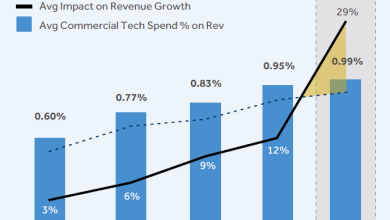
The cryptocurrency industry has been brought to the attention of the general public by scandals related to financial crime but also by its potential to democratize the financial sector.
Regulators around the world have therefore taken an interest in protecting the public and subjecting this new industry to compliance rules, especially with the application of the travel rule to virtual asset service providers
Virtual assets and especially cryptocurrencies have been mainly known to the public through financial crime scandals such as the takedown of the darknet marketplace Silk road.
However, according to the Chainalysis 2020 Crypto Crime Report, illicit crypto transactions represent only a small part of the total crypto activity e.g. 1.1%.
International regulators have, at very early stages, started to scrutinize virtual assets in order to subject those activities to compliance regulations especially money laundering and sanctions circumvention laws.
FAFT travel rule
In June 2019, the Financial Action Task Force (“FATF”) issued guidance subjecting the crypto industry to the same compliance standards as financial institutions.
One of the most controversial and challenging measures was the application of the travel rule to all virtual asset service providers (“VASPs”).
While the FATF rules are only guidelines, nations that do not fall into line risk being blacklisted. FATF will start reviewing how it has been applied amongst its members by June 2020.
So what is the travel rule?
The travel rule relates to the transfer of sender and beneficiary information during wire transfers and is now applicable to transactions involving crypto-assets between Virtual Asset Service Providers, which are every entity which, as a business, transact in virtual assets, and other “obliged entities”.
For instance, customer A from exchange A wants to send 1BTC to customer B in exchange B, exchange A will need to obtain beneficiary information and then send this information plus customer A information to exchange B.
In order to do so, a communication system needs to be in place, and this has been a challenge to the industry as no such a solution exists yet on the market.
It should be noted that FATF requires this to happen only for transfer greater or equal to USD 1000.
In Switzerland, article 10 of the Anti-Money Laundering Ordinance applies whatever the amount of the transfer.
The travel rule has raised a lot of discussions and has been highly criticised by the industry.
Indeed, it means applying a rule that has been designed for the traditional banking industry to a new nascent industry with different characteristics.
Indeed, blockchain technology provides a public record of each transaction which makes the use of cryptocurrency not the best choice for criminals to hide the source of their funds.
Using blockchain investigations tools, law enforcement agencies and internal compliance officers can track the full flow of money and see the potential exposure to illicit activities, which is not possible with fiat currency.
They can see the connection between all wallet addresses.
According to the annual report of Chainalysis, criminals mostly use exchanges which now have to comply with AML regulations including KYC, which allows law enforcements to get access to the names behind an address.
For instance, in October 2019, US Law enforcement dismantled one of the largest child porn websites by tracing bitcoin.
The respect of the travel rule by virtual asset service providers might thus seem to contravene the philosophy of cryptocurrencies but could also have a great positive impact by reinforcing the trust of institutional players and pave the way to mass adoption.
Technological solution for travel rule compliance
Since 2019, VASPs have been trying to understand how to comply with this new requirement.
Very quickly different initiatives all over the world have been launched such as Trisa by Cipher Trace, Sygna et OpenVasp which are working on setting up standards to build communication protocols.
Perhaps one of the most ambitious is the OpenVasp initiative.
The idea was generated by Bitcoin Suisse, Lykke, Seba Bank, Sygnum, Avaloq, and MME, with the support of the Crypto Valley Association (CVA) and the International Digital Asset Exchange Association (IDAXA).
The aim of the initiative is to help the crypto industry to comply with the travel rule by creating a solution for the industry from the industry.
It started as a working group and since March 27th has been incorporated in Zug as an Association.
The goal is to build up an open and decentralized protocol as proposed in the OpenVASP whitepaper, a SWIFT-like messaging system designed specifically for crypto.
Indeed, the OpenVASP initiative seeks to provide a clear picture of FATF compliance based on an open-source protocol allowing for secure communication of sender and beneficiary information for crypto-asset transactions between VASPs.
The OpenVASP protocol is a decentralized protocol with strong end-to-end encryption of personal data that preserves and protects the “anonymity” of clients’ data.
It is designed to be technology-agnostic, fully decentralized, and extensible so that it may be adopted broadly by VASPs of all sizes all over the world using multiple implementations and at a minimal cost.
The first version is being developed in C# by the technology provider Lykke business and will be available on the market for free on June 10, 2020. EPAM has developed the Java version.
Other providers are also getting on the market to offer their own enterprise version of the OpenVasp protocol such as Notabene, 21analytics, Swisschain.
They all share the same objective e.g. compliance with the travel rule.
All those initiatives show the strong will of the crypto industry to comply with all applicable regulations and help to prevent and fight financial crime.






2 Comments